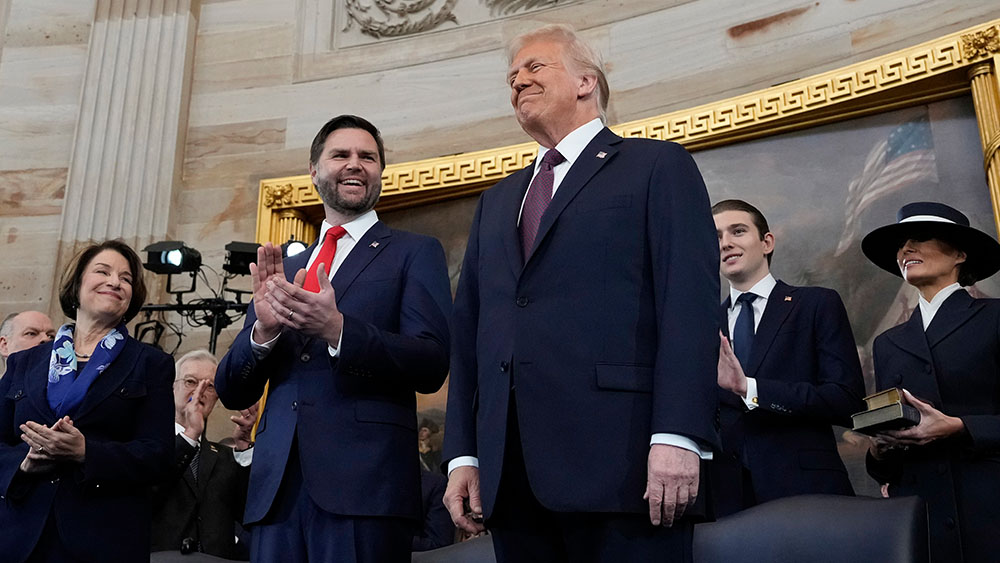Meta scraps DEI initiatives amid broader corporate retreat from diversity policies
By bellecarter // 2025-01-15
Tweet
Share
Copy

- Meta is dismantling its diversity, equity and inclusion (DEI) initiatives, including diversity-focused hiring practices and programs for underrepresented groups.
- The changes are driven by shifting legal and political landscapes, particularly the Supreme Court's decision in Students for Fair Admissions v. Harvard, which ruled that race-based affirmative action in college admissions is unconstitutional.
- Meta's decision reflects a broader corporate retreat from DEI programs, with other companies like Walmart and McDonald's also revising or rolling back their DEI policies.
- The move has raised questions about corporate social responsibility and the tension between legal compliance and fostering an inclusive workplace.
- While DEI programs have been widely adopted in recent years, they face growing criticism from conservative lawmakers and activists, as well as pressure from employees and consumers to take a stand on social issues.
A broader cultural shift
Meta's decision to scrap its DEI programs is part of a broader cultural and political shift within the tech industry and corporate America. The company has recently made several high-profile changes, including ending its fact-checking program on Facebook and Instagram, which CEO Mark Zuckerberg described as "too politically biased." In its place, Meta will implement a community notes system similar to the one used by Elon Musk's platform X. Meta has also expanded its board of directors to include figures like Ultimate Fighting Championship (UFC) CEO Dana White and Ferrari Executive Chairman John Elkann, signaling a desire to diversify its leadership with individuals from a range of industries. However, the company's retreat from DEI initiatives has raised questions about its commitment to fostering an inclusive workplace. Meta's move reflects a growing tension between corporate social responsibility and legal compliance in a polarized political environment. While DEI programs have been widely adopted in recent years, 60 percent of U.S. companies had such initiatives in 2022, according to a Harvard Business Review survey. They are increasingly under fire from conservative lawmakers and activists. (Related: Vindication for independent media: Zuckerberg admits fact-checkers were politically biased, embraces free speech.) At the same time, companies face pressure from employees and consumers who expect them to take a stand on social issues. Meta's decision to dismantle its DEI programs highlights the challenges of balancing these competing demands. As Gale wrote in the memo, "We continue to be focused on serving everyone and building a multi-talented, industry-leading workforce from all walks of life." WokeMob.news has stories related to DEI initiatives of woke governments, individuals and organizations. Watch the video below that talks about Zuckerberg embracing "free speech and President-elect Donald Trump." This video is from the Recharge Freedom channel on Brighteon.com.More related stories:
UNWOKE: Microsoft ditches its "business critical" DEI team as the WOKE WAVE begins to unravel. Zuckerberg's ACCOUNTABILITY ESCAPE STRATEGY includes abandoning his "fact checkers" – however META's AI systems are already programmed to commandeer the same narratives. Facebook's 'free speech' overhaul 'opened season on just about every topic except one.' Sources include: TheEpochTimes.com 1 Axios.com TheEpochTimes.com 2 Brighteon.comTweet
Share
Copy
Tagged Under:
free speech Facebook Social media mark zuckerberg equity diversity fact checkers culture wars inclusion hiring woke meta woke mob wokies cultural shift DEI diversity policies Diverse Slate Approach corporate social responsibility
You Might Also Like
Woke DEI + green nihilism = Dresden in California
By News Editors // Share
Trump administration uncovers startling FBI revelations: Corruption, DEI and a nation at risk
By Willow Tohi // Share
Trump ends affirmative action, shifts federal policy toward merit-based practices
By Cassie B. // Share
Trump signed nearly 100 executive orders on Day 1 of his second term
By Arsenio Toledo // Share
The PURGE of the top brass: Trump takes aim at woke military leadership
By Willow Tohi // Share
Recent News










